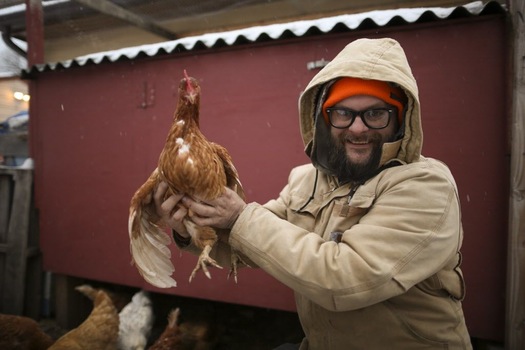
Minneapolis OKs Eased Rules for Keeping Chickens in City, Among Other Changes
Enough revisions to fill Noah's Ark are being made to how Minneapolis governs critters big and small in the city.
Approved Friday by Mayor Betsy Hodges and the City Council, the changes address the safety of animals, the keeping of chickens and other matters in the jurisdiction of the city's Animal Care and Control agency.
The makeover "sets clear requirements around the safety of animals [and] removes counterproductive regulations," the city said in a prepared statement.
February 14, 2016 | Source: Star Tribune | by Paul Walsh
Enough revisions to fill Noah’s Ark are being made to how Minneapolis governs critters big and small in the city.
Approved Friday by Mayor Betsy Hodges and the City Council, the changes address the safety of animals, the keeping of chickens and other matters in the jurisdiction of the city’s Animal Care and Control agency.
The makeover “sets clear requirements around the safety of animals [and] removes counterproductive regulations,” the city said in a prepared statement.
The changes take effect Saturday. Among the revisions:
• A permit will be required for reptiles and amphibians.
• An owner must stay close enough to a tethered animal to protect the animal, or someone else, from it.
• Traps for nuisance animals such as raccoons and squirrels must be humane.
Owning chickens in the city received a substantial amount of attention. Among the new regulations:
• The requirement that residents must approve a neighboring household’s owning six or fewer chickens, turkeys, ducks or pigeons was eliminated.
• Commercial licenses for egg sales will be available for up to 30 birds.
• Composting of chicken manure will be allowed.
The update also sets new standards for the care of animals that end up at the city shelter or in similar private rescue facilities. It specifies that animals can be put down only if they can’t be placed in homes and requires that organizations willing to take animals be checked first.
